The 6 Best Kosher Salt Substitutes
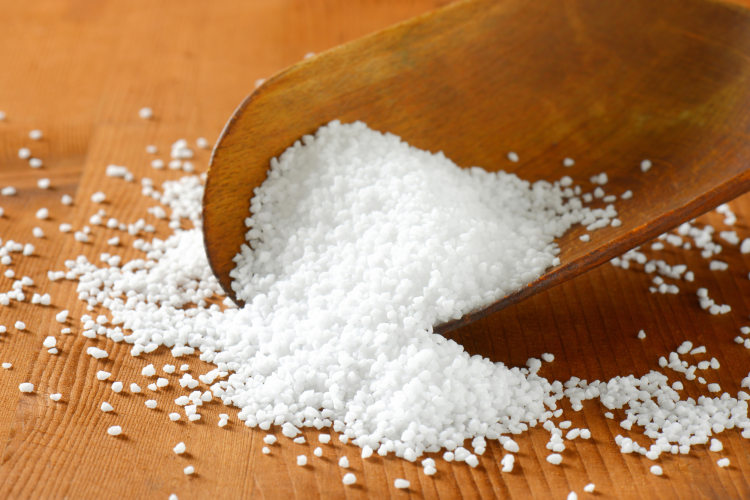
Are you searching for a kosher salt substitute? Or perhaps you’re wondering, what exactly is kosher salt? Just like with a sugar or baking soda substitute, there are numerous kosher salt substitutes out there. You may even find that you prefer one of them to kosher salt. At the very least, after reading this, you won’t have to run to the store in the middle of a recipe to grab a box of kosher salt.
While an excess of salt in the diet isn’t good, there are few health benefits to salt in recipes. In fact, the body needs salt to function. Salt aids in electrolyte and fluid balance, carries nutrients to the cells, helps regulate blood pressure and prevents muscle cramping. You definitely don’t want to leave it out of a recipe. Let’s take a look at some kosher salt replacement options.
What Is Kosher Salt?
We’re all probably familiar with the yellow raincoat-wearing girl on the box of Morton’s salt, but don’t get this confused with kosher salt. That’s table salt and it’s much saltier in taste and finer in appearance. It does not make a good kosher salt substitute.
The word “kosher” comes from the Jewish practice of brining meat. Kosher salt doesn’t have additives (table salt does), which results in the purest flavor. It absorbs moisture, dissolves slowly and binds to other ingredients.
Kosher salt, often considered by some to be among the healthiest salts due to its lack of additives, has wide and coarse grains, resulting in a gentler way of adding taste than table salt. Kosher salt doesn’t have iodine in it, which can give a bitter taste to regular table salt. This offers a cleaner flavor. The large flakes of kosher salt stick to food better than table salt, which is necessary when curing meats and something you'll want to look for when choosing a kosher salt alternative.
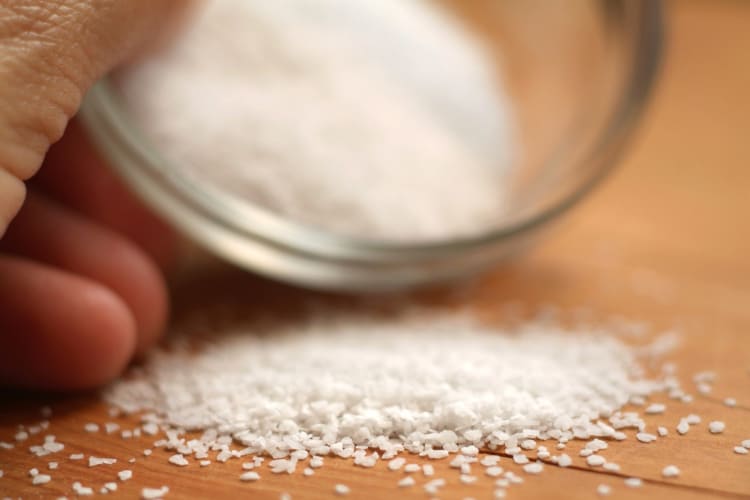
Purpose of Kosher Salt in Cooking and Baking
More than just a food flavoring, kosher salt is used in seasoning, brining and curing meats as well as in marinades, spice rubs, canning and pickling. When using a kosher salt substitute for baking, the coarse texture gives a nice crust and clean taste to bread and pastries.
The large crystals don’t dissolve as easily as table salt, which prevents over-seasoning. You can use kosher salt to rim margarita glasses or for ice cream makers if you’re out of rock salt (or “ice cream” salt) as well as in garnishing recipes for appearance and taste.
For the best flavor, it’s best not to omit kosher salt. But if you’ve started a recipe and realize you don’t have kosher salt, there are a few kosher salt substitutes you can use.

6 Kosher Salt Substitutes
1. Coarse Sea Salt
One of the best substitutes for kosher salt, coarse sea salt has the same flaky texture and wide and coarse grains. It has a similar flavor and is best used for garnishing and seasoning food.
Use a 1:1 ratio for replacing kosher salt in recipes. You’ll want to be careful of over-seasoning. Kosher salt is a tad coarser than sea salt, so the sea salt may dissolve faster and result in a saltier flavor when used as a sub for kosher salt. If you'd like the guidance of an expert chef when learning to use new ingredients like this, you could always try a cooking class near you. If you don't have the time to go somewhere or want to learn in the comfort of your own home, you can also try some online cooking classes.
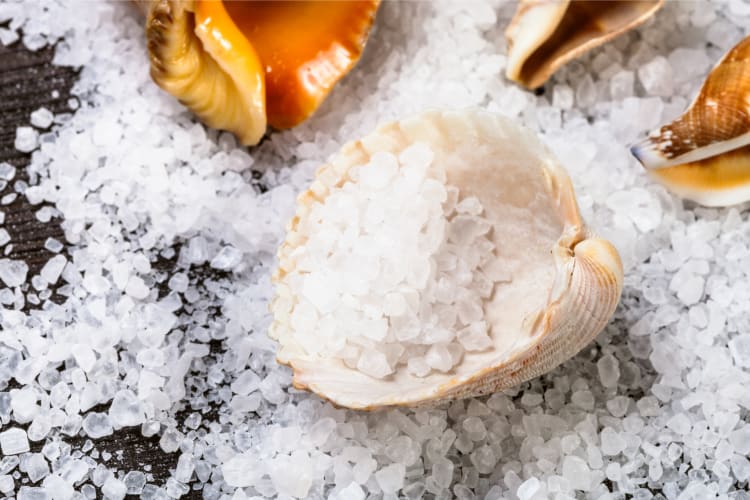
2. Himalayan Pink Salt
Known for its pretty pink color 一 which comes from mineral impurities like magnesium, calcium and potassium from rock crystals near the Himalayas 一 Himalayan pink salt is an excellent kosher salt substitute. It’s used to season recipes, cure meats, garnish dishes and rim cocktail glasses. Himalayan pink salt has complex flavors and a mild salty taste, which is due to all of the minerals packed inside.
Use a 1:1 ratio when using as a kosher salt substitute for baking or cooking.
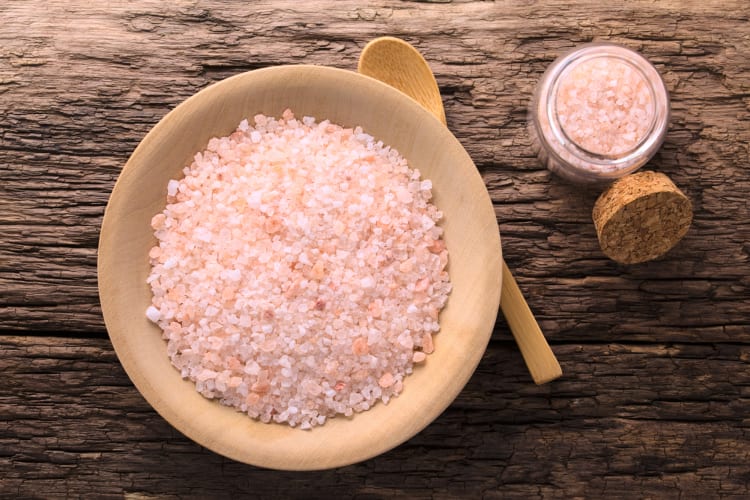
3. Fleur de Sel
Similar to sea salt, fleur de sel has a briny sea flavor and a delicate flaky texture. As you can tell from its fancy name, which means “flower of salt,” fleur de sel is harvested in parts of France. It forms as a thin layer on the surface of shallow water along the coast in the Brittany region. It’s skimmed off by hand with a special sieve. This intricate harvesting process makes it much more expensive than sea salt.
Fleur de sel is rarely used for cooking due to it having quite a distinctive aroma and a certain brininess to it. It’s mainly used for garnishing or flavoring dishes like fish, meat, eggs, salads, vegetables, soups and even chocolates and desserts like sea salt-topped caramel concoctions. If you like salt on watermelon and cantaloupe, you’ll probably enjoy a sprinkling of fleur de sel as a kosher salt substitute.
It’s less salty than kosher salt, though due to it being quite briny you'll want to use it sparingly. Start with 1/2 teaspoon of fleur de sel for every 1 teaspoon of kosher salt, give it a taste and add more if needed.
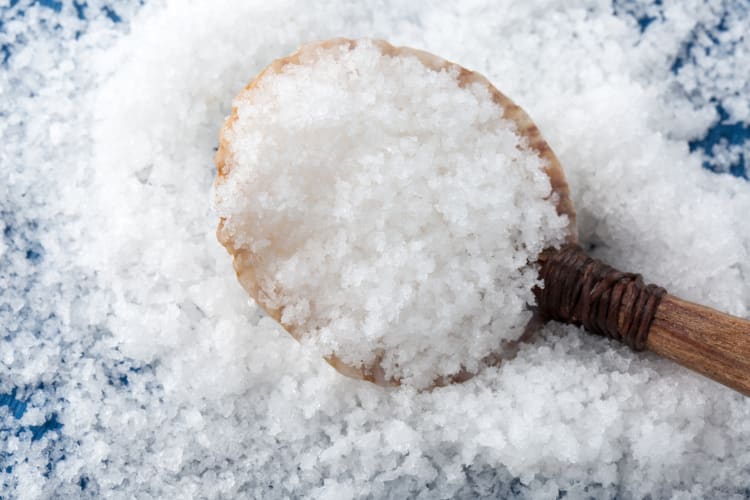
4. Maldon Sea Salt
Harvested in the village of Maldon in England, Maldon sea salt is clean and light in flavor with a soft flaky texture. It has large pyramid-like crystals as opposed to kosher salt’s large flake-like appearance. Maldon is also less salty and has a savory and almost sweet zing to it. It’s more expensive than kosher salt, but it makes a great kosher salt substitute.
Since Maldon’s flavor is more subtle than kosher salt, you’ll want to use a 1:1 ratio of Maldon to kosher salt and add from there.
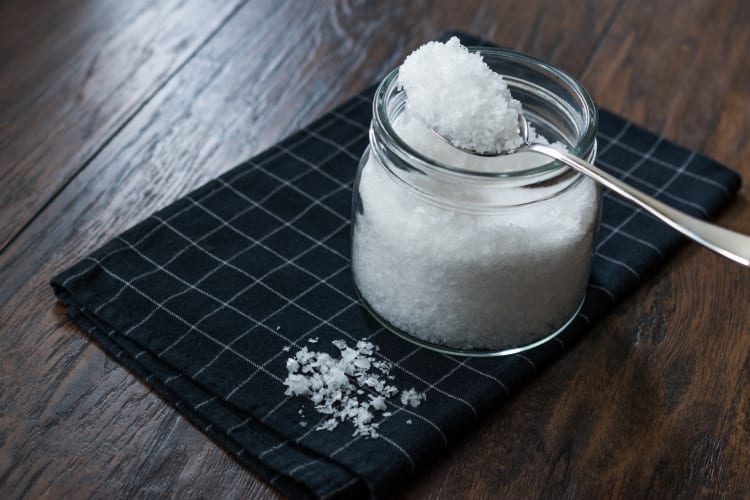
5. Pickling Salt
Also called canning or preserving salt, pickling salt makes a terrific kosher salt alternative. They don’t really look alike in appearance, but their tastes are similar. Kosher salt can also be used in pickling. Neither variety has anti-caking additives or iodine, so they’re often used interchangeably in canning and preserving.
When using as a kosher salt substitute, use 1 ¼ or 1 ½ teaspoons of pickling salt for each teaspoon of kosher salt.
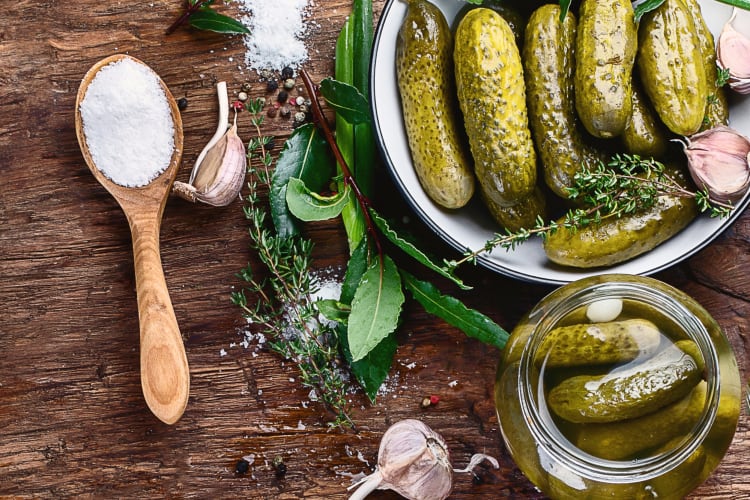
6. Hawaiian Red Salt
Also called alaea, Hawaiian red salt has a beautiful red color that comes from iron oxide surrounding the Hawaiian volcanoes where it’s found. It’s used for curing and seasoning salmon and pork as well as in traditional Hawaiian cuisine such as poke bowls and pipikuala, which is a salted and dried beef that’s similar to beef jerky.
Hawaiian red salt has a unique earthy taste that adds a complex touch to foods and makes an excellent kosher salt substitute. Use it on a cucumber salad or to season roasted cauliflower and sweet potatoes for unique flavor and appearance.
Use a 1:1 ratio when using as a kosher salt substitute.
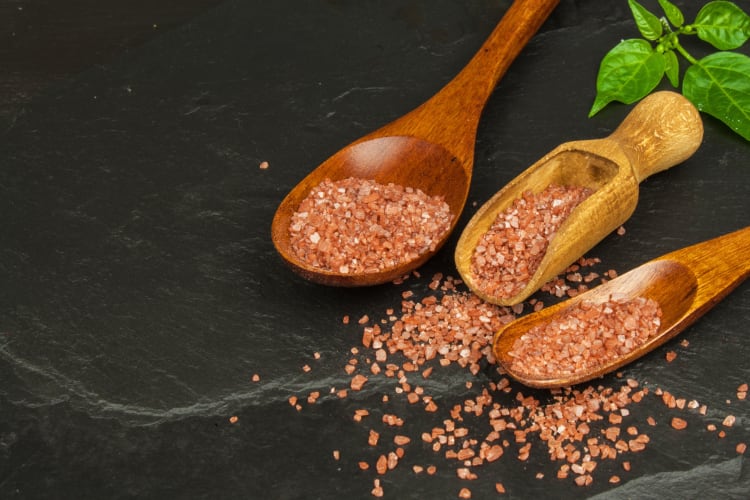
The next time you’re preparing a meal, curing meat, preserving pickles or creating a new recipe and need a sub for kosher salt, give some of these suggestions a try. These kosher salt substitutes will provide flavor, texture and convenience to your cooking and meals.
For even more ways to explore your favorite foods, check out other experiences happening on Cozymeal.
